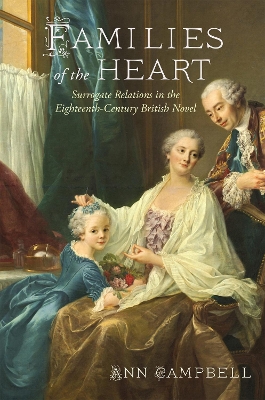Transits: Literature, Thought & Culture 1650-1850
1 total work
In this innovative analysis of canonical British novels, Campbell identifies a new literary device-the surrogate family-as a signal of cultural anxieties about young women's changing relationship to matrimony across the long eighteenth century. By assembling chosen families rather than families of origin, Campbell convincingly argues, female protagonists in these works compensate for weak family ties, explore the world and themselves, prepare for idealized marriages, or sidestep marriage altogether. Tracing the evolution of this rich convention from the female characters in Defoe's and Richardson's fiction who are allowed some autonomy in choosing spouses, to the more explicitly feminist work of Haywood and Burney, in which connections between protagonists and their surrogate sisters and mothers can substitute for marriage itself, this book makes an ambitious intervention by upending a traditional trope-the model of the hierarchal family-ultimately offering a new lens through which to regard these familiar works.
